Meet Oriana Barrientos Gonçalves, a young, passionate and skilful coffee professional from Venezuela who currently grows her coffee career in Madrid, Spain. Oriana is the barista of Coffee Tools SAT & Roaster and a coffee instructor at European Bartender School.
Oriana prefers to drink filter coffee but she knows a thing or two about espresso too! She won both the 2024 Specialty Blend and 2025 Espresso Pro tournaments that happened during Madrid CoffeeFests. Oriana is driven, community and growth-oriented, so we can’t wait for her career to flourish even further!
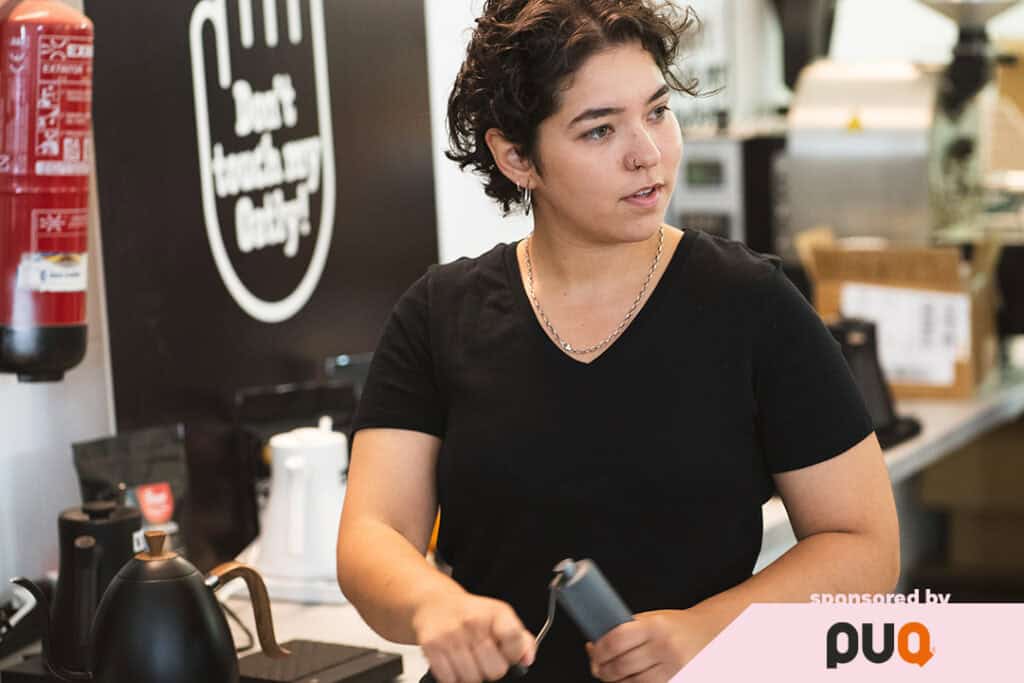
Oriana, what is your first memory with coffee?
My first memory with coffee was when I was very little, maybe 4 or 5 years old, and I was on my grandmother’s terrace having an afternoon snack with her: cookies & coffee with milk. I know it may sound weird here in Europe, but I’ve been drinking coffee for as long as I can remember.
What inspired you to pursue a career in the coffee industry, and how did you get started?
When I arrived in Spain, I worked as a waitress in different restaurants, and I was always drawn to working at the bar, especially making cocktails and coffee. So, I decided to professionalize and made the decision to take a barista course. At that time, I knew nothing about specialty coffee, so it took me by surprise and I completely fell in love.
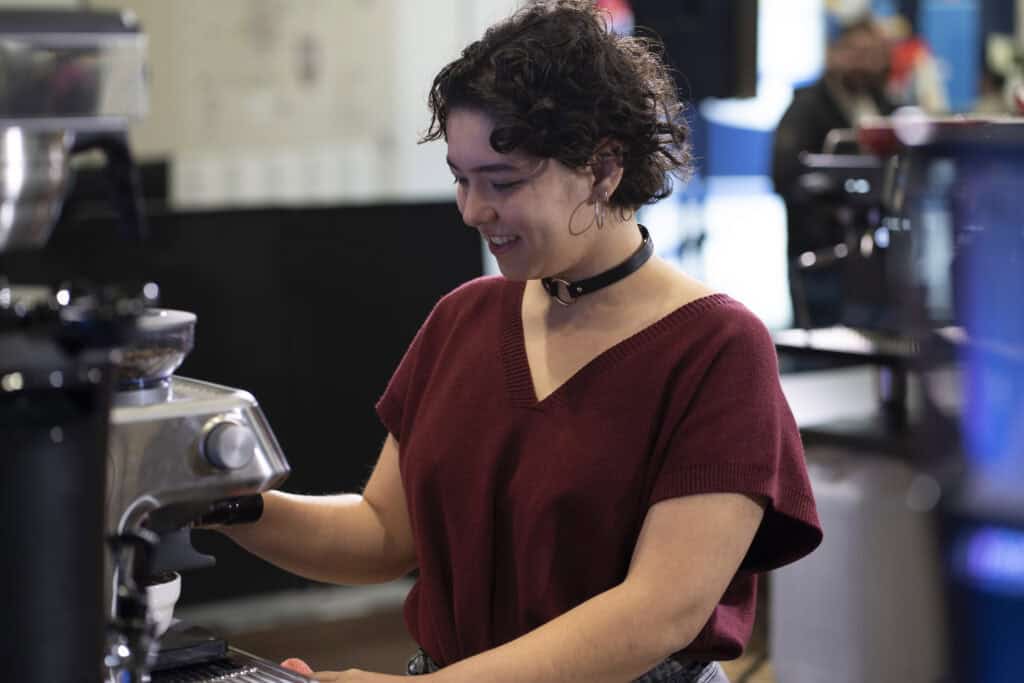
Tell us a bit about the places you work at. What is your role there?
At Coffee Tools, I handle a variety of tasks: training café staff, managing quality control and providing consulting. Plus, I’m learning to roast coffee, which I’m really excited about! At European Bartender School, I teach a 5-day introductory barista course.
What kind of experience do you want to create for your customers and students?
Now that I’m no longer a barista in a cafe, I focus on helping my students in class connect with their coffee on a multi-sensory level, not just taste. I like to guide them in finding descriptive terms for coffee and teach them to appreciate it from different perspectives.
How do you stay motivated and inspired to keep improving your coffee-making skills?
I constantly try to stay curious about the world of coffee, not just from a barista’s perspective, but also from a roaster’s perspective and from the origin of the bean. Every time I feel like I “know enough about a topic,” I find myself at the starting point again because I know there are different approaches to the same subject that I still don’t know, but I want to learn.
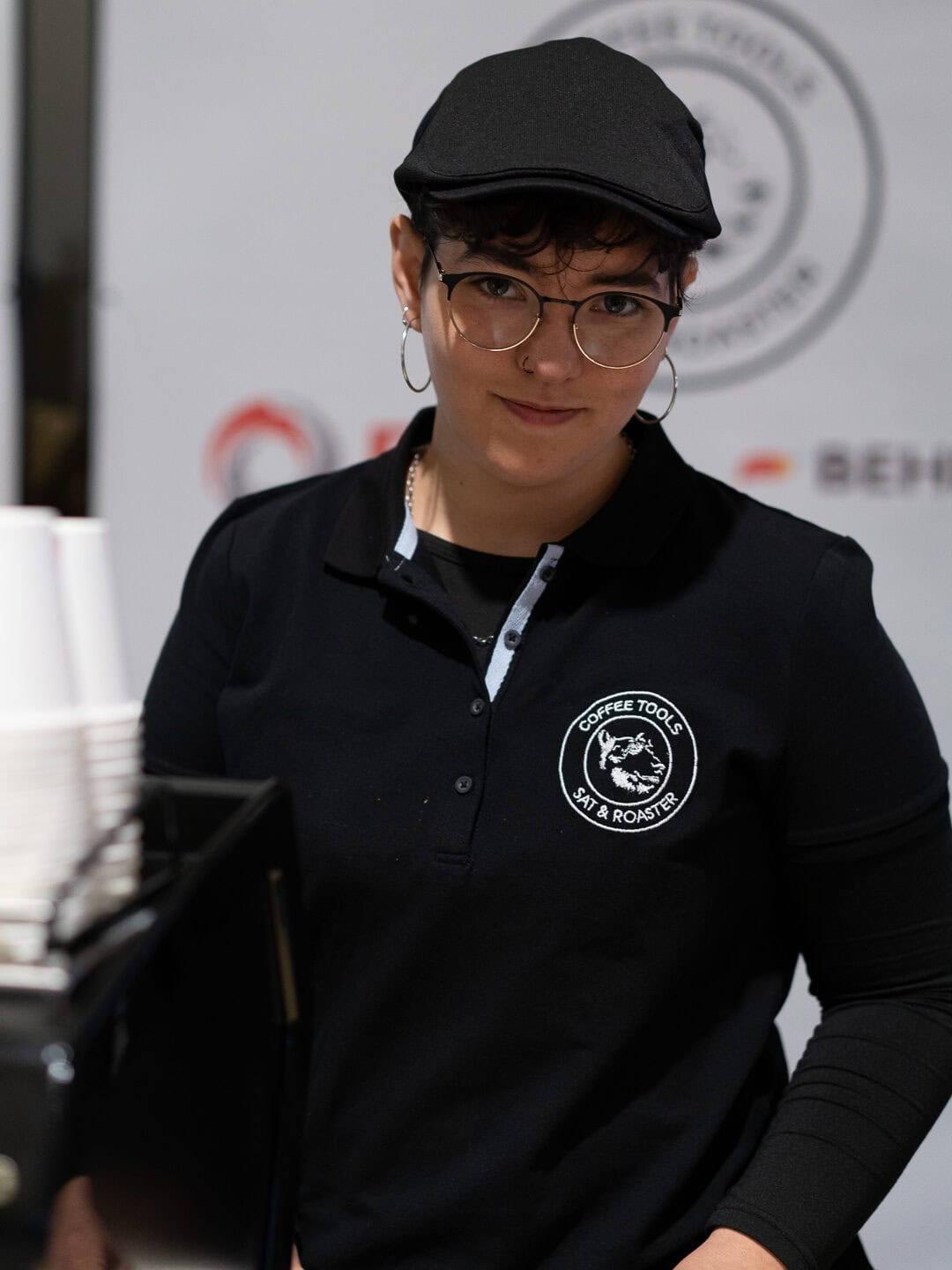
You have some nice achievements in coffee competitions. Can you tell us more about them? What are the next championships you’d like to compete in?
In the last two CoffeeFest events held in Madrid, I participated and won in two tournaments: the first one was about creating the best specialty blend with three/four given origins, and delivering a final espresso to the judges.
In the last CoffeeFest, the Espresso Pro competition was very exciting to participate in. Here I had a blend to work with and I had to play with every other parameter I knew to deliver the best espresso.
Editor’s note: Oriana is too modest to admit but she won both of the above competitions 🙂
Those were very good experiences to prove what I know about coffee. Now I would like to bring all of that knowledge to mixology, and later, compete in the SCA Coffee in Good Spirits Championship.
What is in your opinion the most important thing to have in mind when you start to compete in coffee competitions?
Based on my experience, I feel that the most important thing is to know the rules well and enjoy the process. Whether you win or not in a competition, simply participating means you’re already learning something new, and that’s more than enough.
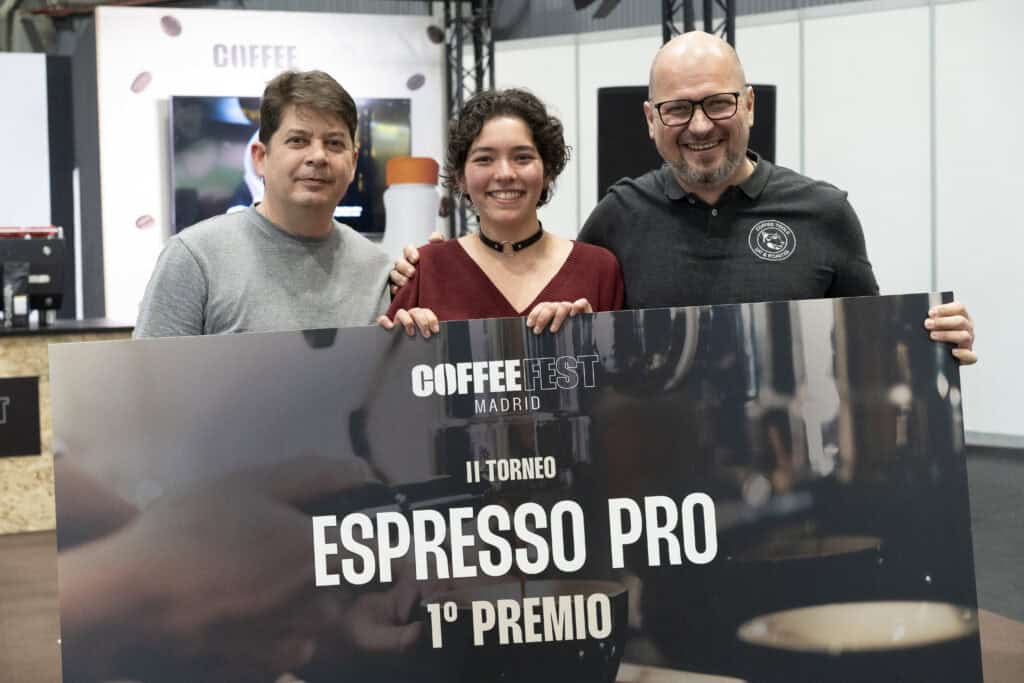
What are some common misconceptions about our industry that you’ve encountered, and how do you address them?
I think that in recent years, specialty coffee is becoming something exclusive to only a few elites who manage to understand this type of coffee and exclude anyone who doesn’t grasp the concept the first few times. I feel that the real work we have in this industry is to make this knowledge accessible, bring people closer to these types of coffees and teach them to appreciate them, not lock them in a bubble.
If there would be one piece of knowledge about coffee you’d like everyone to know, what would that be?
The main thing I would like people to be aware of is the hard work behind the cup of coffee they’re drinking, from the coffee farmers with the greatest effort to be able to offer us an exceptional coffee bean, to the local roasters and baristas who bring it closer to you.
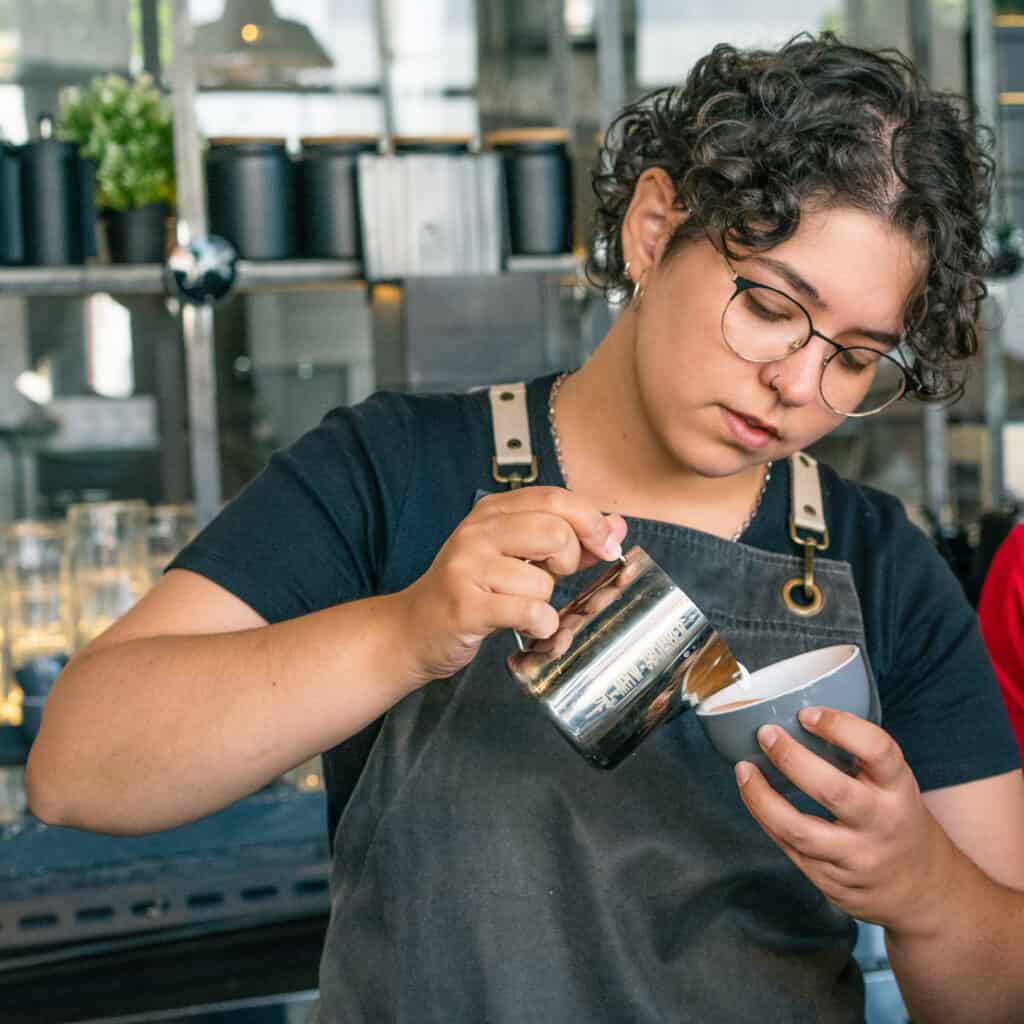
What are your passions and hobbies apart from coffee?
Apart from the coffee, I’m really interested in the world of cooking and mixology. I truly feel that they are connected to each other. I have always been very into anything related to experimenting with our senses and handcrafted tasks.
What coffee challenges are you looking forward to? Any new projects or collaborations?
My new goal right now is to focus on learning as much as possible about roasting, as I’m finding it very interesting. I’m starting to get to know little by little, and it’s giving a lot of meaning and interest to my development and growth as a professional.

Quick Fire Questions for Oriana Barrientos Gonçalves:
Filter coffee or espresso-based?
Filter coffee.
Milk coffee or black coffee?
Black.
The most underrated coffee drink?
Batch brew.
The most underrated coffee brewer?
Batch brewer 😀
What brewing method do you use at home?
A classic V60.
Favourite barista tool?
A scale.
The number one coffee shop in Europe that every coffee geek should visit?
Can’t tell you just one 😉
Favourite city outside your own for a coffee tour and why?
Barcelona – there are so many local coffee roasters and nice cafés that are so worth it!

